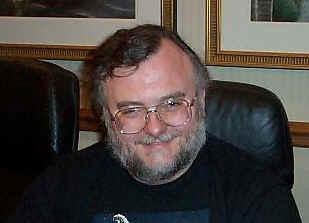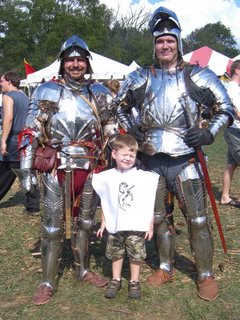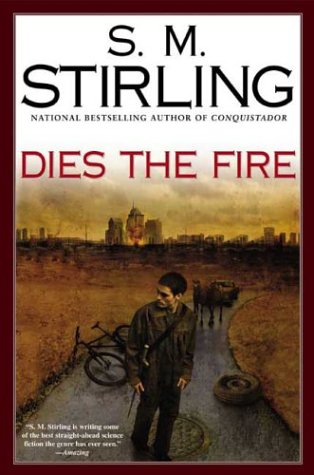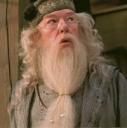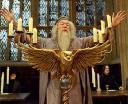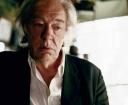Archive for the ‘Books’ Category
LEAVE, and don’t come back

This blog is defunct. We’ve moved to: http://www.1to10reviews.com
I switched from WordPress.com (which is a wonderful place to write a blog) to a self-hosted blog. I am still using WordPress, but I got the install package for WordPress 2.6.
Thanks for visiting – please come see us at our new home.
Percy Jackson & The Olympians: What About Percy’s Mom?
My Review:5
Warning: SPOILER ALERT
Rick Riordan is an author of both adult and teen-oriented books. He has series targeted at teens that focuses on one boy, Perseus (Percy) Jackson. Percy is the son of Sally Jackson, a mortal woman, and the son of Poseidon, the Greek God of the Sea from ancient mythology. In the series, the Greek gods are not myths at all, but a vibrant and lively part of Western Civilization. Along with Poseidon, Zeus, Athena, Hephaestus and the rest of the crew come a host of monsters and mayhem including (but not limited to) the Minotaur, Medusa, the Furies, prophecies, quests, adventure, sword fighting, revenge and true love. Sounds like the Princess Bride as described by Peter Falk. 🙂
In any case, I am not here to review the books themselves. I love them, I think they’re grand. They fall into a similar genre as J. K. Rowling’s Harry Potter series, and Chris Paolini’s Inheritance Cycle, also books I enjoy thoroughly and unequivocally. I’m a geek boy for sci-fi, fantasy, mythology, and the “weird.”
No, in this review, I am getting specific. In fact, it would be more accurate to say that I am making a prediction, a prediction about Percy’s mom, Sally Jackson (as you might have guessed from the title of this post). That prediction is: I think she is a half-blood (half god and half human) herself. That would, in fact, make Percy 3/4 god, instead of the normal half god, or demigod. Here’s my thinking:
- Her eyes change color depending on the light
- She can see through mist (something that keeps most mortals from seeing monsters, gods, and the rest of the weirdness)
- In Book 1, The Lightning Thief, Sally isn’t killed when the Minotaur picks her up by the neck, but is captured and spirited away by Hades in a shower of golden light. Maybe Hades could do that to a mortal, but still…
- I think we need something to make Percy even more special, and that would do it
- plus, it would make an interesting plot twist. I don’t remember reading any myths about humans who had a god for a grandparent and a parent
I know this post is probably uninteresting to those who haven’t read these books. Even if you have, maybe this degree of analysis seems like a waste of time. Don’t care. I think it’s neat, and I am calling it now. Maybe in the end I’ll be proven wrong. But I think Sally Jackson is herself a half-blood. You heard it here first. I’ll let you know the results when the series ends.
Oh, and by the way. The reason I gave this review a 5 has nothing to do with how much I like the books. I think they’re great. I gave it a 5 because I’m making a WAG (wild ass guess) and I figure I have a 50/50 chance. Twisted logic, but if you read this far, you’re probably right there with me. 🙂
Dies The Fire
My Review: 9
I’m really excited about this book. It’s rare that I find a new author who I immediately like and gravitate towards, but S.M. Stirling is one such. I am so impressed with the writing in this book. The characters are rich and interesting. The setting is both grand and comfortable at the same time. The story is a big, big idea. And there are lots of references and homages to other stories that I love, Tolkein in particular. I was struck also that in the first 3 pages I was already hooked. The time it took to empty my bowels was all I needed to become entranced in this story. After that, whether on the pot or off, I wanted to read this book.
The premise of the book is that one day all technology stops working. Electricity, and most high-energy chemical reactions stop working. That means internal combustion engines don’t work, electricity doesn’t flow, and even guns don’t fire. For all intents and purposes, the human race is thrown back into the 14th century. Swords, spears and armor are the weapons of the day. Knowing how to shoot a bow and arrow (or better yet to make them) is a rare and prized skill, as is blacksmithing and horse-shoeing.
The concept is really engaging, and S.M. Stirling (the author) does a wonderful job bringing the idea to fruition and exploring many far-reaching ramifications of an idea like this. What happens after a couple of days in a big city like New York or San Francisco when the water doesn’t flow, the trucks and trains don’t move, and fire fighters can’t drive to anywhere to put out a blaze. It’s a scary thought.
Also, one of the really neat ideas Stirling raises with this book is the way people use their time in modern society. Take blacksmithing for instance. As a society we do not need or have blacksmiths, not in the historical sense. But there are people who have the time, leisure, interest and resources to take up traditional blacksmithing as a hobby. In Stirling’s world, these people are now the few who have a necessary skill set in a profession long since made obsolete by technology. Re-enactors of medieval society (Renaissance Fair types) are also one-up on the rest of us. 🙂
The principal characters in this story are also really compelling. One is an ex-Marine and pilot who crash lands with some charter customers in the Idaho wilderness. Another is a Wiccan musician with a 14 year-old daughter in central Oregon. Stirling does a wonderful job exploring vastly different reactions (from vastly different people and groups) to an incredibly difficult concept, namely the loss of all high-technology in modern society.
Stirling’s website is not great, but it does give a brief history of the author and a list of his writing. The wikipedia entry about him offers some more information about him and his stories. Dies The Fire is the first book in a three part series dedicated to this event (called “the Change”) which robbed humanity of the benefits of technology. Other books and series by Stirling cross-over and refer to one another and to the Change. Currently I am finishing the second of these three books, and I am already getting sad to see the stories end. I’m looking forward to exploring more of Stirling’s work though.
I am happy to give Dies The Fire a very solid 9 out of 10. I think the book is a wonderful piece of fantasy fiction, and I am glad to have picked it up.
Michael Gambon as Albus Dumbledore
My Review: 2
First of all, let me clarify what this post is about. I am a rabid Harry Potter fan eagerly anticipating the release of the seventh and final book as well as the 5th movie adaptation. I am not here to compare Sir Michael Gambon to Sir Richard Harris. I am not here to blast Sir Michael Gambon as an actor. I happen to think that he is an extremely fine actor, world renowned for his theatrical prowess and for his professionalism in big budget productions for the silver screen. There is no debate (in my mind) as to his competence as an actor in general; I think that he is excellent.
No, this review is focused solely on his performance and interpretation of the character Albus Dumbledore in the film adaptations of the Harry Potter books, specifically books 3, 4, and 5. (The late Sir Richard Harris played the role of Dumbledore for movies 1 and 2.)
The role of Albus Dumbledore is a familiar one in the “Hero’s Quest” genre of story telling. Many such stories feature an aged, wise mentor whose role it is to protect, educate, and guide the hero. (For examples please refer to Brom in the Eragon series by Christopher Paolini, Cort in the Dark Tower series by Stephen King, Gandalf in the Lord Of The Rings Trilogy by J.R.R. Tolkein, and Curly in the movie City Slickers featuring Jack Palance and Billy Crystal.) Different authors choose different paths for their guides and mentors to follow, including how prominently they figure in the story, how they teach (kindly or with tough love) and whether they live or die in the story. In this instance we are dealing with J.K. Rowling’s much beloved grandfatherly figure: Albus Percival Wulfric Brian Dumbledore.
Dumbledore is wise. Dumbledore is kind. He is funny, charismatic, ever-polite and courteous, and always exudes a radiating sense of power and calm. He is a rock from which to anchor oneself in the stormy seas of Rowling’s magical world. He is not snappish, abrupt or rude. He never shouts at people. He always gives the appearance of calm control. (***Notable exception and possible plot killer – read the asterisk below, but only if you have already read book 6 or you do not care about the plot being exposed.)
All that being said, I must now begin the regrettable process of lambasting an otherwise fine actor. Gambon’s performance in this role drives me crazy. He shouts and frets. He twists his fingers with a look of great consternation on his face. He moves rapidly, and talks over people. He argues, fusses and fumbles for words. To put it another way, he acts in every way opposite of the image of Albus Dumbledore.
Now, in fairness, Gambon has a tough job to do in filling the shoes of Sir Richard Harris. Not only was Harris one of the most remarkable actors of all time (in my humble opinion) he also nailed the role of Dumbledore perfectly. Calm, collected, and always with a merry little twinkle in his eye. (Note the Bertie Botts scene at the end of the first movie.) Again, I don’t want to compare the two, but I do want to acknowledge the admittedly difficult task of reprising a role done so well by such a fine actor.
(Harris as Dumbledore in the “Botts” scene)
It is entirely reasonable that Gambon would want to make the character his own; in fact, I respect him for that ambition. But I feel more strongly than I can express that his performances as Dumbledore to date (movies 3 and 4) are way, way off target. It is immensely frustrating to see a character whom I respect and cherish mishandled.
An equal share of the blame goes to the directors involved, Alfonso Cuarón and Mike Newell. It was partially (even significantly) their responsability to own and understand the character and “direct” the actor in his performance. I think in not steering Gambon towards a calmer, more commanding persona they both did the actor a grave disservice, and did enormous damage to the quality of both movies.
I must say that I am anxious to see the latest movie, Harry Potter 5: The Order of the Phoenix. By all accounts the scripting, acting and effects are outstanding. Aside from the tremendous detraction found in Gambon’s performance as Dumbledore, I enjoyed movie #4 the most since movie #1. I can only hope that the latest director David Yates has taken it upon himself to re-direct Gambon in his interpretation of the role.
I’d love any comments on this – I feel strongly about this particular subject. I may update after seeing the movie – it opens tonight at midnight and I will be there. But based on the performances so far (in movies 3 and 4) I have to give his performance as Albus Dumbledore a resounding 2.
PS
I loved Gambon as the villain in Open Range with Kevin Costner and Robert Duvall; he was truly outstanding and totally despicable (in the right way.)
(Gambon is in the middle.)
—————————————————————————————————————
For reference, here is the IMDB page for Michael Gambon.
—————————————————————————————————————
*** In book 6 Dumbledore drinks a vile potion concocted by Lord Voldemort. This potion magically induces a firghtened and delirious state which includes shouting and fear. Soon thereafter Dumbledore is killed after pleading with a member of his teaching staff back at the school where he serves as Headmaster. These events are contrary to the points I am making about the chractr of Voldemort, but I submit that they are irrelevant for two reasons: 1. These are exceptional circumstances which lead up to the character’s death. 2. This book (6) has not yet been filmed and should have little or no bearing on the performance of the character of Dumbledore up to this point.
—————————————————————————————————————
Update:
I saw the midnight showing of Harry Potter and the Order of the Phoenix. I think they did a fine job. They crammed 800 or so pages into 138 minutes of screen time, and I think they did a credible job. Gambon’s performance as Dumbledore suffered from similar woes to those in the past, but had two small saving graces in this movie:
1. Rowling build a degree of conflict between Harry and Dumbledore into the plot of this story, and though I still don’t like the degree of agitation Gambon portrays in his character, there is at least some more tension that is legitimately supposed to exist in this movie.
2. Dumbledore’s role in this movie is much smaller that in past reprisals; thus we need suffer less than we might have. (All right that was a low blow. Sorry.)
For just this movie (as opposed to Gambon’s portrayal of Dumbledore across all 3) I would rate him a 4. For the whole suite I am sticking to my 2 rating. Movie number 4 justs makes me mad.
 Leave a comment
Leave a comment




